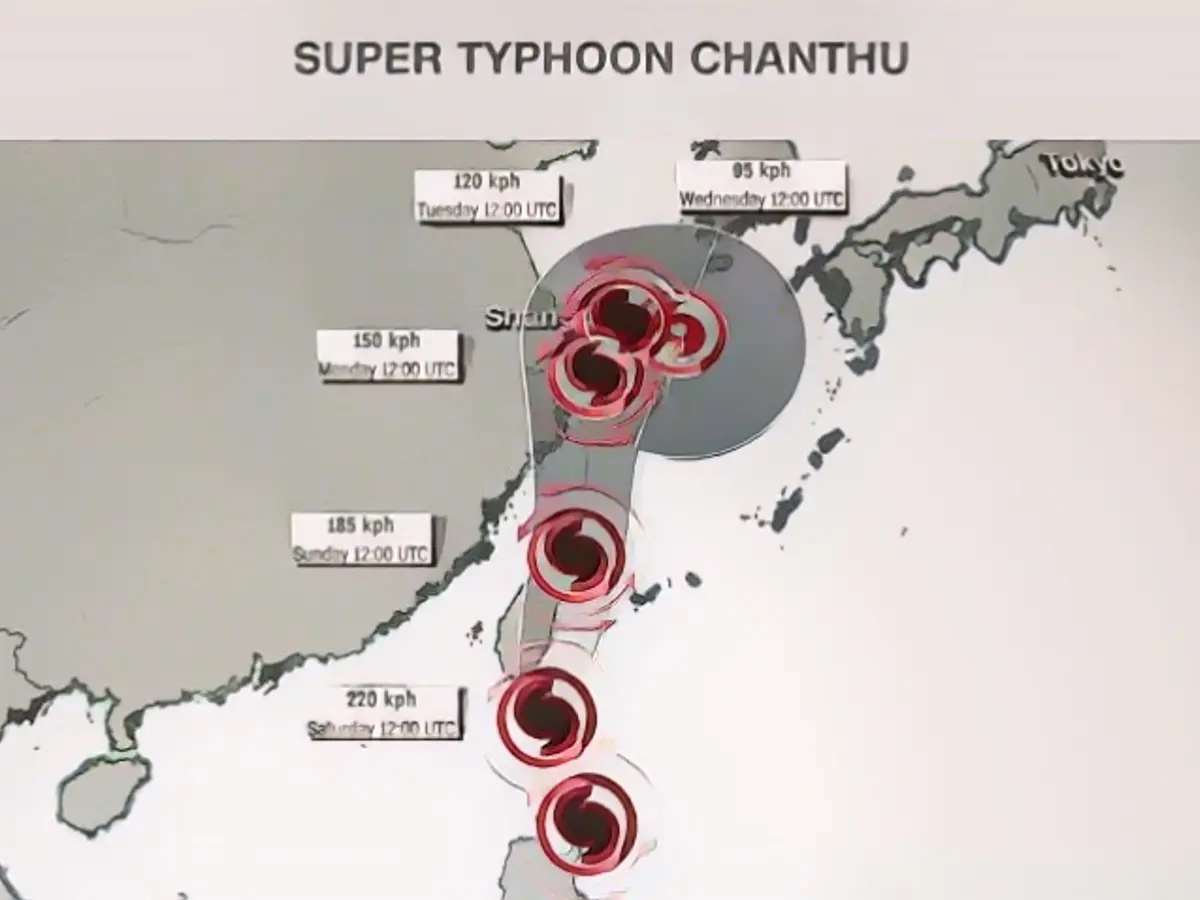Typhoon Chantu Halts Operations at China's Busiest Ports, Causing Supply Chain Issues
The Shanghai International Port Group announced that several terminals in the world's busiest cargo port by volume, Shanghai, would be halted either on Sunday evening or Monday due to Typhoon Chantu's effects. The nearby Hangzhou Bay Ningbo-Zhoushan Port, the third-largest in the world, also suspended operations at some of its terminals, as reported by a separate statement.
Chantu weakened significantly since making landfall in the Philippines and Taiwan over the weekend. Before the super typhoon hit the Philippines, it was one of the strongest storms of the year with sustained winds of up to 260 km/h (160 mph). However, even as its intensity decreased, it caused significant damage in the Shanghai area. Shanghai and Zhejiang Province temporarily paused most flights and suspended train services as Chantu approached.
The port disruptions come at a challenging time for global trade. Supply chains strain under increasing consumer demand, leading to delivery delays. The recent surge in coronavirus cases in China has exacerbated this issue, causing container congestion in prominent Chinese ports.
In previous months, a terminal in the Hangzhou Bay Ningbo-Zhoushan Port was closed for two weeks after a terminal worker tested positive for Covid-19. A shipping analyst predicted that the port's operations might return to normalcy within 60 days.
The price of imported goods from China to Europe and North America has surged, and businesses have reported significant delays in receiving orders as they rush to stock up on inventory before the holiday season.
Though businesses in affected areas are implementing contingency plans to maintain operations, the suspension of operations at China's busiest ports could lead to higher shipping costs and delivery delays in the global market.
Relevant Insights
Disruptions to port operations due to extreme weather events like typhoons can result in delays, damage, and increased costs for shipping companies and businesses relying on timely deliveries. Port terminals may experience disruptions in vessel berthing and cargo handling, potentially leading to damage, spoilage, or losses for perishable goods. Infrastructure damage, such as crane, conveyor, or forklift failure, can further compound the issue.
Meanwhile, supply chain disruptions can ripple throughout the global shipping industry, affecting business operations and leading to increased insurance claims and operational expenses. Meanwhile, the shipping industry must adapt by implementing risk management strategies and contingency plans to mitigate the impacts of severe weather events.
The economic impacts of severe weather events can be significant, and the shipping industry should be prepared to address these challenges effectively. In the case of Typhoon Chantu, businesses must remain resilient and adaptable amidst the disruptions, maintaining a clear focus on addressing their customers' needs.








